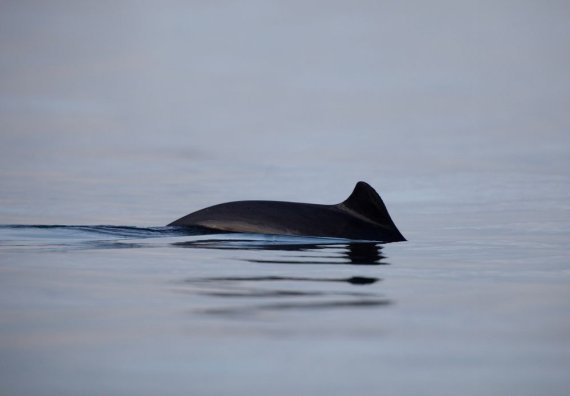‘Usually we get reports every day from people who have seen harbour porpoises, especially in the spring. This year it is quiet. And hardly any of the porpoises are being washed up on the shore. They are just not there,’ says Leopold. It could be a temporary dip, but it could also indicate a change in the sea. ‘If this top predator stays away, something is going on. But what? That is very difficult to identify.’ It would help if Leopold, who studies the stomach contents of washed up harbour porpoises, were to discover a drastic change in the marine mammal’s diet. ‘That makes it possible to identify the problem,’ says Leopold.
If, for example, there is suddenly hardly any whiting in their stomachs, that would explain their absence: too little to eat. But the harbour porpoise’s failure to appear in these waters may be attributable to a host of minor factors. It is hard to pinpoint what they might be. For now, Leopold cannot say much about it, because there just aren’t any porpoises being washed up so he cannot analyse their stomach contents.

